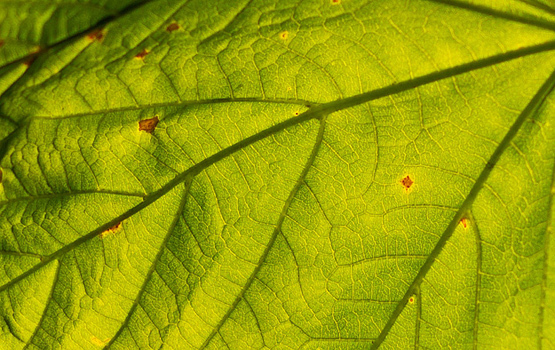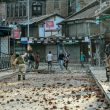By Arne Johansson. First published 18 July in Offensiv, weekly paper of Rättvisepartiet Socialisterna (CWI Sweden)
Too many socialists, even among those who like to see themselves as revolutionary Marxists, have been sadly late in discovering and understanding the ecological analysis of capitalism’s irreparable metabolic rift with the planet and nature that Karl Marx and Friedrich Engels began working on during the 1800s.
With his book, “Karl Marx’s Ecosocialism: Capital, Nature and the Unfinished Critique of Political Economy” (Monthly Review 2017), Japanese Marx researcher, Kohei Saito, has made a new and important contribution to correcting this shortcoming at a time when capitalism’s predatory attitude towards people and nature is approaching tipping points that threaten to make large parts of the planet uninhabitable.
Saito, an associate professor of political economy at Osaka University, largely builds upon the significant amount of unpublished notes by Marx that he is working on as one of the editors of the Marx-Engels-Gesamtausgabe (MEGA), an incomplete project compiling the collected works of these two pioneers.
A new addition to this material is a detailed account of how Marx developed his immense interest in the most recent research in the natural sciences and in subjects such as biology, chemistry, geology and mineralogy. His starting point was the crisis created by capitalism’s industrialisation of agriculture and the rift that he described in the metabolism between man and nature that is today known as the ecological cycle. Saito shows how these were issues that engaged Marx to great extent during his unfinished work on Capital after the publication of its first part in 1867.
Even if Friedrich Engels is, to date, the more well known of the Marx-Engels duo when it comes to scientific writings like “Anti-Dühring” and his unfinished, but posthumously published, “Dialectics of Nature”, Saito points out that Marx was at least equally interested in these issues – the whole time in close contact with Engels.
No less than one-third of Marx’s notebooks – packed with fragments, excerpts and commentaries – were written during the last 15 years of his life and of these, almost half deal with scientific subjects. This refutes the position of the so-called “Western Marxists” (in the Frankfurt School, among others), who have long criticised Engels’ deriving of the dialectical laws of motion from nature as an unmarxist distortion and who have argued that Marx’s historical materialism can only be applied to human society.
Saito, in the preface, praises the important efforts to rediscover Marx’s analysis of capitalism’s irreparable metabolic rift which socialist professors, Paul Burkett and John Bellamy Foster, have paved the way for since Burkett’s “Marx and Nature” (1999), and Foster’s Marx’s Ecology (2000).
With the help of the journal Monthly Review, of which Foster is the editor, these two have, in an effective way, combated the delusional views of Marx as an ecologically naive supporter of industrial growth (“prometheanism”) that have long flourished among both green theorists and “the first-wave eco-socialists” such as Ted Benton, André Gorz, Michael Löwy, James O’Connor and Alain Lipietz.
The fact that Marx today inspires ecological research around the world is an important victory for this theoretical struggle, as are the echoes of this which are increasingly appearing among the works of both environmental researchers and debaters such as Naomi Klein in “This changes everything – capitalism versus the climate”.
In “Karl Marx’s Ecosocialism”, Saito shows how Marx gradually developed his analysis of capitalism’s “metabolic rift”. Saito admits that the young Marx’s fascination with capitalism’s enormous development of the productive forces can sometimes be perceived as “productivist”, even though in his “Paris Notebooks” and the “Economic and Philosophic Manuscripts” from 1844, he describes capitalism’s growing divide (alienation) between workers and the fruits of production as well as between man and man and between man and nature, when the workers, during industrialism, were separated from the land.
Marx had already at this stage formulated communism’s task of restoring a complete and rationally regulated unity between humankind and nature at a higher level. But it was only after Marx, with “The Poverty of Philosophy” in 1847, for example, turned his back on the abstract philosophy of the Young Hegellians and experienced the defeat of the revolutions of 1848 that he seriously began to deepen his materialist studies of the way that capitalism operates.
A central part of Marx’s critique of some classical bourgeois economists’ value theories was that these regarded labour as the source of all value, while Marx carefully pointed out that they then stared blindly at the market’s exchange values that were supplied by labour power. One of the conclusions of this that Marx would arrive at during his economic studies was that they then forget about nature’s use values which they regarded as “a free gift to capital”. This means that capital, with its competitive accumulation, undermines both the workers and the land, “the original sources of all wealth.”
It seems to have been through his contact with the socialist physicist and good friend Roland Daniel’s interest in the ecocycle between animals and plants that Marx first noted the concept of metabolism. Man exists, as Marx would explain, within “the universal metabolism of nature”, where he can, from nature, extract utility values as part of the “social metabolism”. But it was a few years later, during his preliminary studies for Capital and in the context of the growing crisis in British agriculture that Marx began to seriously take an interest in the criticisms of the industrial plundering of the earth developed by German agrochemist, Justus von Liebig. Here, Marx also found support for his criticisms of the unhistoric method of analysing rent put forward by the economist David Ricardo and Thomas Malthus’ population question. Humankind’s relationship with nature has changed during the development of new methods of production. But it is under capitalism that the radically strengthened rifts in the relationship between man and nature occur.
And it was particularly under the influence of Liebig that Marx in 1865-66 began to revise his earlier, more optimistic belief in contemporary technological advances and to understand how the short-term approaches of capitalism to counteract the declining fertility of the earth only tended to create new and “irreparable metabolic rifts” on a higher and higher level, and even on a global level.
Saito outlines how Liebig in his pioneering book, “Agricultural Chemistry”, had described how the strong urban growth of the British cities during industrialisation dramatically increased demand for the agricultural goods of the depopulated countryside, while at the same time, the minerals of food were not returned to the earth as fertiliser but instead, through London and other city’s new water toilets, were flushed out in the polluted rivers and sea as sewage.
Thus, not only the fertility of the British fields was depleted, but also the countries whose guano (faeces from South American seabirds) and bones were imported as fertiliser: “Great Britain robs all countries of the conditions of their fertility; she has already ransacked the battle-fields of Leipzig, Waterloo, and the Crimea for bones, and consumed the accumulated skeletons of many generations in the Sicilian catacombs…. We may say to the world that she hangs like a vampire on the neck of Europe”, as Liebig described it.
In Capital, Marx summed up the message that, “all progress in capitalist agriculture is a progress in the art, not only of robbing the worker, but of robbing the soil; all progress in increasing the fertility of the soil for a given time is a progress toward ruining the more long-lasting sources of that fertility” and that, “Capitalist production, therefore, only develops the techniques and the degree of combination of the social process of production by simultaneously undermining the original sources of all wealth—the soil and the worker.”
The desperate commodity hunt by England and the United States’ for guano and saltpetre for their depleted soil drove the United States to annex dozens of guano-rich islands in 1856. It led also, as Saito points out, to the violent repression of the indigenous peoples of South America’s west coast, as well as to the Guano War of 1865-66 and War of the Pacific of 1879-84 for saltpetre.
In Capital, Marx also describes how the social necessity of trying to control and tame a natural resource while at the same time trying to protect it from exploitation has played a crucial role in history. The irrigation works in Egypt, Lombardy and Holland and artificial canals such as in India and Persia not only watered the soil, but also fertilised it with minerals carried as sediment from the hills. “The secret of the flourishing state of industry in Spain and Sicily under the dominion of the Arabs lay in their irrigation works”.
If Marx had previously been able to occasionally talk about the civilizing role of capitalism during colonialism, he now saw, without idealizing pre-capitalist societies, mainly suffering and misery in the traces of the dissolution of traditional local communities that broke the intimate relationship between people and nature. When the British regime during the colonial era in India, according to Marx, “introduced a caricature of English large-scale landed property” and abandoned the system of dams and drains previously controlled by the state in 1856, this resulted in drought and a terrible famine that caused one million deaths.
According to Marx, in all societies and modes of production, man must contend with nature in order to satisfy his needs: “Freedom in this field can only consist in socialised man, the associated producers, rationally regulating their interchange with Nature, bringing it under their common control, instead of being ruled by it as by the blind forces of Nature; and achieving this with the least expenditure of energy and under conditions most favourable to, and worthy of, their human nature.
In his “Economic Manuscript of 1864-65”, Marx warns that with capitalism, “instead of a conscious and rational treatment of the land as permanent communal property, as the inalienable condition for the existence and reproduction of the chain of human generations, we have the exploitation and squandering of the powers of the earth”.
In a chapter about Marx’s ecology after 1868, Saito highlights Marx´s great interest in the debates between various agricultural experts of, for example, the “physical” and “chemical” schools about which substances are most important to add to increase the soil’s fertility, minerals or nitrates. He notes, for example, the significant impression that seems to have been made on Marx by chemist, James Johnston, and, in particular, the German agronomist Karl Fraas, who, partly in a polemic with Liebig, emphasised the great role that climate change plays when deforestation reduces soil moisture and the natural nutrient supply of the soil.
In a letter to Engels in 1868, Marx describes Fraas as having “an unconscious socialist tendency”. According to Marx, in his book “Climate and the Vegetable World throughout the Ages, a History of Both”, Fraas showed how “cultivation when it progresses in a primitive way and is not consciously controlled (as a bourgeois of course he does not arrive at this), leaves deserts behind it, Persia, Mesopotamia, etc., Greece.”
Fraas was alerted to the consequences of rapid deforestation in countries such as England, France and Italy, even high up in previously inaccessible mountain areas – which he believed raised the need for regulation. Through his reading of Fraas and a number of other researchers such as John Tuckett and Friedrich Krichhof, Marx had also noted in his manuscripts for volume three of Capital (the second and third volumes were published after Marx’s death by Engels on the basis of Marx’s incomplete manuscripts) that neither capitalist agriculture nor forestry was sustainable and that capitalism’s irreparable metabolic rift between society and nature was therefore not limited to depletion of the soil.
“The development of culture and of industry in general has evinced itself in such energetic destruction of forest that everything done by it conversely for their preservation and restoration appears infinitesimal”, Marx also noted in the manuscript for volume two of Capital.
The same capitalist tendency to violently exploit nature to its limits that he saw in unsustainable forestry, he also saw in a way that he found “abominable” in animal keeping. In a comment on an extract from Wilhelm Hamm’s praise of intensive meat farming, Marx also questioned whether this “system of cell prison” and the grotesque breeding of abnormal animals could ultimately result in “a serious weakening of the life force”.
Saito explains how Marx’s great interest in the polemics between Liebig and Fraas and the rapid development of science and technology led him to the conclusion that in-depth studies were needed to see how long capitalism could stave off its ecological crisis and that these were issues he found necessary to develop, which, according to Saito’s opinion, delayed Marx’s work with the incomplete second and third volumes of Capital.
Also in the studies of historian, Georg Ludwig von Maurer, about equal pre-capitalist societies and their insights about the necessity of trying to regulate the metabolism between humans and nature, Marx saw in his later “Ethnological Notebooks”, “an unconscious socialist tendency”. Marx was impressed by the “natural vitality” and ecological sustainability of self-sufficient German Mark villages, which in his opinion, were the Middle Ages “only focus on freedom and public life”.
In a letter to Russian Narodnik, Vera Zasulich, Marx did not rule out that a socialist revolution in Russia could be based on similar village communes and explained that the capitalist system in Western Europe and the United States is “in conflict with the working masses, with science, and with the very productive forces which it generates – in short, in a crisis that will end through its own elimination, through the return of modern societies to a higher form of an ‘archaic’ type of collective ownership and production.”
Saito emphasizes that it is not possible to fully understand Marx’s incomplete criticism of political economy if one ignores its ecological dimension. According to Saito, Marx’s original manuscript for Capital’s Volume Three shows some differences compared to those published by Engels after Marx’s death, with examples in a footnote relating to the analysis of the credit system. Apart from (small) clarifications of what Marx expressed compared to what Engels published by his writings, Saito claims that the fourth part of the new collected works will include notebooks that are all the more important since Capital is incomplete.
Reading these original sources in parallel with what has so far been published in Capital will, according to Saito, convince researchers that Marx’s ecology is a fundamental part of his critique of political economy. He even believes “that Marx would have more strongly emphasised the problem of ecological crisis as the central contradiction of the capitalist mode of production had he been able to complete Capital 2 and 3 volumes”.
Saito’s “Karl Marx’s Ecosocialism” describes very little of the important contributions that Engels provided in order to generalise their common conclusions. In his ingenious little pamphlet, “The Part Played by Labor in the Transition From Ape to Man”, Engels explains that the animal merely uses its surrounding nature while man controls it, but adds with a long list of striking examples:
“Let us not, however, flatter ourselves overmuch on account of our human victories over nature. For each such victory nature takes its revenge on us. Each victory, it is true, in the first place brings about the results we expected, but in the second and third places it has quite different, unforeseen effects which only too often cancel the first.
[….]
“Thus at every step we are reminded that we by no means rule over nature like a conqueror over a foreign people, like someone standing outside nature – but that we, with flesh, blood and brain, belong to nature, and exist in its midst, and that all our mastery of it consists in the fact that we have the advantage over all other creatures of being able to learn its laws and apply them correctly.”
What is required in order to restore this metabolic rift, which has been pushed to its breaking point under capitalism, and establish what is today called a sustainable society, is, according to what Marx says in Capital, a higher society, that is, socialism:
“From the standpoint of a higher socio-economic formation, the private property of particular individuals in the earth will appear just as absurd as private property of one man in other men. Even an entire society, a nation, or all simultaneously existing societies taken together, are not owners of the earth. They are simply its possessors, its beneficiaries, and have to bequeath it in an improved state to succeeding generations as boni patres familias [good heads of the household].”
It is certain that if Marx and Engels were alive today – when capitalism’s irreparable metabolic rift has evolved into an existential threat to all civilised life – they would pay decisive attention to following and understanding the very latest in today’s climate and Earth System research.
A central task for Marxists today is to recreate the red thread between the ecological studies of the pioneers’ and, like them, to understand socialism as the vital key to a rational regulation of the metabolism between people and nature.











